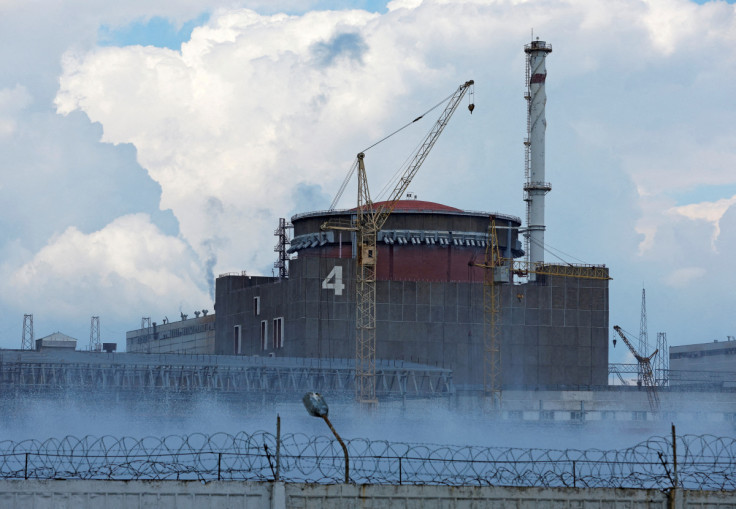Strike On Zaporizhzhia Nuclear Plant Could Result In Another Fukushima, Expert Says
KEY POINTS
- Boris Zhuikov said he does not fear an accident on the scale of Chernobyl
- He added authorities will have to establish an exclusionary zone
- The expert thinks the only solution is to demilitarize the entire area
Amid the U.N warnings that the Zaporizhzhia nuclear power plant in Ukraine faces "catastrophic consequences" in the wake of renewed shelling in the area, a radiochemist has explained how a leak in Europe's largest power plant can leave the entire territory uninhabitable.
Radiochemist Boris Zhuikov does not fear an accident on the scale of the 1986 Chernobyl disaster could happen, but believes a tragedy much like the 2011 Fukushima incident is plausible.
"I consider it extremely unlikely that a reactor itself — a reactor's core — will be damaged in a way that results in most of its radioactivity being released," he told Russian media organization Meduza.
"A disaster like the one at Chernobyl or with the consequences of a nuclear explosion are a fantasy. [The reactors at Zaporizhzhia] would be very hard to destroy even if you wanted to. They're surrounded by powerful enclosures and additional protective layers," Zhuikov added.
Despite some important differences between Zaporizhzhia and Fukushima plant, the latter is a "more apt comparison."
"The radioactive water that was released as a result of the [Fukushima] incident was partially dumped into the Pacific Ocean. The Pacific Ocean is huge, so nothing disastrous happened. The Zaporizhzhia nuclear plant sits on the bank of the Kakhovka Reservoir on the Dnipro river. If radioactive materials enter the river, which would be quite likely in the case of an accident, it would be very bad," he said.
According to him, an earlier simulation of a nuclear disaster at the plant (the study on the idea of an earthquake) revealed it would cause immense suffering to the people in the surrounding territories — even if no deaths occurred.
"The situation would be extremely unpleasant — just like it was in Fukushima. In Fukushima, nobody died, but everyone had to be resettled, and the Japanese had to take all kinds of thorough safety measures," said Zhuikov.
Besides, the leak of nuclear isotopes would expose civilians to an increased risk of developing cancer. Authorities will have to establish an exclusionary zone. Though people can work and take tours of personal protective equipment, living there would be too dangerous.
The time needed to evacuate people after an accident would depend on exactly what elements leaked, he added.
"If a working reactor were destroyed and Iodine-131 were released, the evacuation would need to take place in a matter of days. If Cesium-137 were released, they would probably have a month," said Zhuikov.
The expert also highlighted the dangers of shelling, stating if a shell hits the plant in the wrong spot, it would leave the entire territory uninhabitable. "It won't matter who fired the first shot," Zhuikov said. He added the only solution is to demilitarize the entire area.

© Copyright IBTimes 2024. All rights reserved.





















